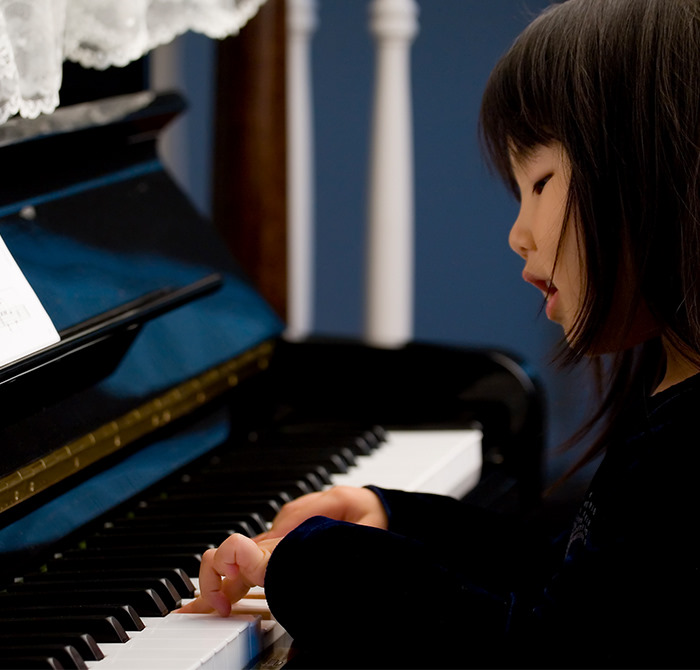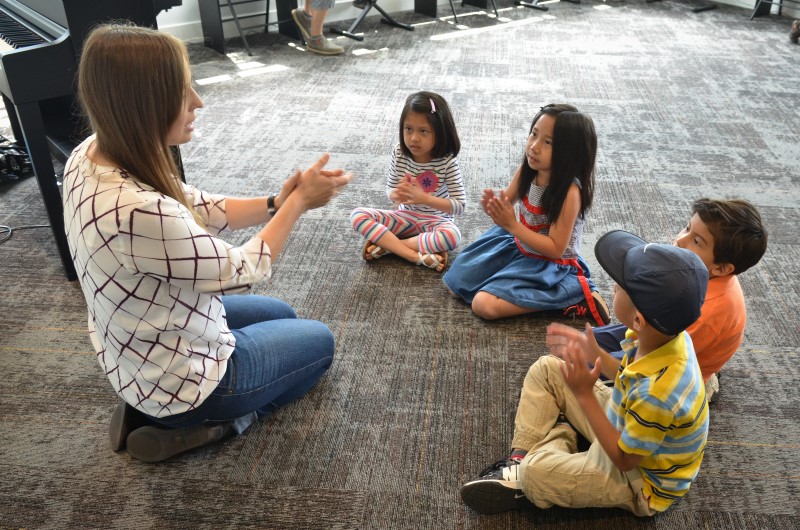Why Starting Music Early Matters
What can a toddler really get from a music class?
Is your kindergartener ready for an extracurricular activity?
What if they change their mind literally two seconds after you sign them up?!
These are among the list of concerns when parents are about to shell out some hard-earned cash for their kids activities. The real question everyone is asking – is starting music early worth it?
Science shows us that actively participating in music classes assists with brain development, particularly before age 7*. Brain scans have shown that the corpus callosum, a bundle of nerve fibers connecting the two sides of the brain, is larger in musicians than non-musicians and that the most significant brain changes happen at an early age.** Learning a musical instrument at a young age sets the stage for language and reading skills, academic success, memory and attention span, and the development of fine and gross motor skills.
But that is just the beginning! A well-rounded human is more than just brains. Group music classes also:
- Develop Social Skills:
In group music classes, kids actively interact with their peers through games, ensemble songs, and playing percussion or piano at the same time and pace. To play a song together, kids must learn to listen to each other, wait their turn, and feel the tempo of the music collectively. Through this constant interaction, the class develops their ability to work as a team towards a common goal. These social skills developed through music-making are significant to children’s ability to engage with others as they grow up. - Build Confidence:
An invaluable life skill is knowing how to present yourself in public. Group music classes are a safe environment where kids can learn to perform, make mistakes and receive constructive feedback and observe their peers doing the same. The ability to recover from mistakes (especially in front of others), and celebrate progress in a group setting gives kids a sense of validation and builds their confidence. - Promote Discipline & Perseverance:
Practicing at home is the key to success in group classes! Group music classes are designed to move students from one level to the next at a similar pace. In order to progress with their peers, kids learn the discipline (with the help of their parents!) to practice what they learned in class, and the perseverance it takes to master a new skill before moving on to the next challenge. Even two-year olds learn discipline by listening and responding to their instructor and waiting their turn in class!
Long gone are the days of mastering one skill attached to a career path. Your child may not be the next musician on tour with Beyonce, and they may choose to pursue different passions in life, even if they started music at a young age. Even still, participating in music classes makes your child more equipped and capable to succeed in their everyday, growing-up life.
And the earlier they start, the better!
Why not start them with a Music Summer Camp?
Articles Referenced:
*https://www.theguardian.com/science/2013/nov/12/music-lessons-early-childhood-brain-performance
**https://www.inc.com/john-rampton/the-benefits-of-playing-music-help-your-brain-more.html

